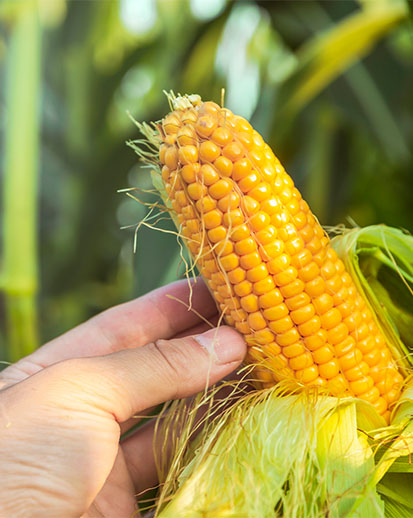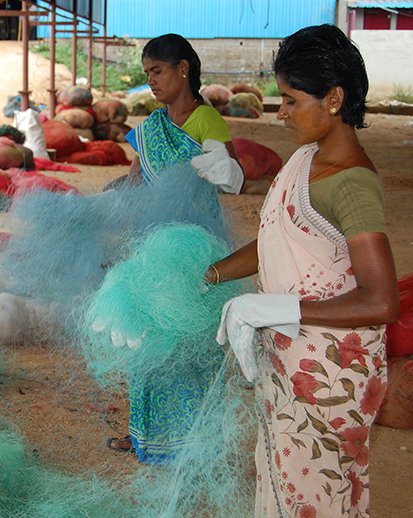Science & Technology
A global, purpose-led leader in bioscience
We see science as a crucial means by which we can support the sustainable transformation of the global food chain, address climate change, and overcome resource scarcity through bio-based and circular solutions. Building on 150 years of expertise, DSM today is a global, purpose-led leader in bioscience, developing a broad range of sustainable solutions for the food, feed, personal care, pharma, nutrition, agriculture, and materials sectors. We are strongly committed to investing in science as a fundamental driver of our future growth.
Making a difference, through bioscience
Our science-based solutions address many global societal challenges and reach billions of people worldwide. For instance, with Maxilact®, a portfolio of acidic and neutral lactase enzymes, we help dairy-manufactures deliver lactose-free products without compromising on taste, texture, and health. Not only does Maxilact® meet the needs of lactose-intolerant customers worldwide, the natural sweetness it unlocks also enables up to 20% sugar reduction in all dairy products.
We have leveraged our bioscience capabilities to develop human milk oligosaccharides (HMOs) identical to those provided in mothers’ milk. Correct levels of supplementation can provide health benefits during childhood and beyond. In particular, HMO supplements can support immunity and gut health, as well as cognitive development. Today, our HMO portfolio enables sustainable, cost-effective solutions that can be easily incorporated into different food formulations with less than one-tenth of the environmental impact of other, commonly applied methods.
Scientists and engineers from Veramaris, a joint-venture of DSM and Evonik, have pioneered a way to make marine algae a high-quality and sustainable source of omega-3 for aquafeed. In fact, 1 kg of Veramaris® oil yields the same amount of DHA and EPA omega-3 as 60 kg of wild-caught fish. With the world’s population set to reach 9.6 billion by 2050, the growing demand for omega-3 fatty acids and protein has placed extreme pressure on wild fish stocks. Veramaris can play an important role in meeting that demand, sustainably.
We continue to invest in science and, during 2021, we further strengthened our global network of world-class R&D through the acquisition of First Choice Ingredients. We opened a new Analytical Center of Excellence in Tulln (Austria) and laid the foundation stone of our future state-of-the-art Health & Nutrition Innovation Campus in Kaiseraugst (Switzerland). These facilities will help us accelerate innovation in the field of bioscience with the application of digital technology in modern, collaborative research workplaces, especially in support of the extension of our business model to personalization & precision.
Our competences, science network and collaborative approach
Underpinning all of this is our unique set of scientific capabilities, which are key to our continued success and will remain our foundation for growth. Our ongoing investment ensures that we have the right combination of skills, technologies and partners to develop disruptive innovations to meet specific unmet market needs. At the end of 2021, we had 35 laboratories spread across 13 countries, and our science network comprises over 1,500 scientists employed by DSM, including 20 professors and academic associates, distributed around the globe.
These employees co-operate with more than 100 organizations including academic, institutions and other R&D partners worldwide, both in public-private partnerships and in academic collaborations such as with the Cape Peninsula University of Technology in South Africa, Iowa State University in North America, and Wageningen University & Research in the Netherlands.
Our open and collaborative approach increases our scientific scope and helps us make joint scientific contributions to address significant scientific and societal challenges. We participate in more than 40 industry networks and more than 70 public-private partnerships (PPPs) relevant to our innovation growth themes.
Future-proofing our R&D and innovation efforts
To reinforce our worldwide position as a leader in bioscience and create greater value for DSM and society at large, we continued to align our science and innovation organization with the changing needs of the market as well as with the increasing speed of technological and scientific advances in the world.
During 2021, we designed a new science and innovation organization, effective from 1 January 2022, that better reflects our future end-market organization in Health, Nutrition & Bioscience. This includes simplifying how we operate and integrating our various R&D centers, including the Innovation Center, more closely with our Business Groups. With priority-setting and resource allocation done by those closest to the customer, we will have full alignment from ideation to commercialization, and the best opportunity for our R&D to make a difference. Above all, we have created an environment where our scientists can thrive and focus on doing the right things faster and help realize our collective mission to help address some of the world’s biggest challenges.
"By working together as a DSM-wide innovation force, we can create even bigger impact for people, for planet and for our business."
Digital transformation of our R&D capabilities
Advanced digital technologies are more and more critical for capturing new opportunities, and we continue to increase our investments in the digital transformation of our science and innovation capabilities such as in artificial intelligence (AI), big data, deep learning and modeling, as well as extending lab automation. These investments are accelerating our core processes, increasing our operational efficiency, and improving the speed of our innovation processes and delivery.
For instance, together with Delft University of Technology (Netherlands), we started a research program in 2021 aimed at long-term innovation in the field of e-biorefinery concepts. The goal is to develop new insights and methods for using gases, such as carbon dioxide, hydrogen and carbon monoxide, as feedstocks for industrial fermentation processes, preventing these gases from being released into the atmosphere. Another example is our translational science program, which will see the creation of a dedicated unit in 2022 combining digital and analytics specialists who will work in cross-functional teams drawn from across R&D, Innovation, Regulatory, IP, Marketing, Sales, and other functions, to work collaboratively on data-driven, market-valued, customer-centric innovations.
x € million |
|
2021 |
|
2020 |
|---|---|---|---|---|
|
|
|
|
|
Nutrition |
|
257 |
|
241 |
Materials |
|
79 |
|
73 |
Innovation Center |
|
45 |
|
60 |
Corporate Activities |
|
21 |
|
11 |
Total continuing operations |
|
402 |
|
385 |
|
|
|
|
|
Discontinued operations |
|
13 |
|
60 |
Total |
|
415 |
|
445 |
|
|
|
|
|
R&D expenditure as % of net sales (continuing operations) |
|
4.4 |
|
4.7 |
Staff employed in R&D activities (continuing operations) |
|
1,522 |
|
1,653 |
The Bright Science Awards
We continue to recognize, reward and nurture scientific talent outside DSM. Our Bright Science Awards programs reward excellence in PhD research in areas of particular relevance to our strategy and helps participants make the vital connection between scientific achievement and commercial and industrial success.
The Scientific Advisory Board
We regularly connect with our Scientific Advisory Board of internationally recognized experts from leading universities around the world. The supervision of this Board changed significantly during 2021, working directly with our Chief Innovation Officer to challenge and review our scientific work across the company, provide valuable perspectives and insights, and give advice on trends and upcoming technologies. Following the acceleration of our strategic journey in 2021, we made changes to the composition of the Scientific Advisory Board to better reflect our future as a focused Health, Nutrition & Bioscience company. This process was ongoing at the end of the year with new appointments anticipated in 2022.
Member
Background
Thomas Hankemeier (m)
Professor of Analytical Biosciences at the Leiden Academic Center for Drug Research at Leiden University (Netherlands). Medical Delta Professor of Translational Epidemiology at Erasmus MC, Rotterdam (Netherlands). Co-founder of MIMETAS, the first organ-on-a-chip company. He has co-authored more than 320 publications and holds over 10 patents. Nationality: German.
Kirk Klasing (m)
Distinguished Professor of Animal Biology in the Department of Animal Science at the University of California, Davis (USA). He is an extensively published expert on poultry nutrition and immunology, with more than 250 peer-reviewed publications, 10 edited books and nine awards to his name for his work in animal biology. Nationality: American.
Chris Voigt (m)
D.I.C. Wang Professor of Advanced Biotechnology in the Department of Biological Engineering at Massachusetts Institute of Technology (USA). He is the co-director of the Synthetic Biology Center at MIT and the co-founder of the MIT-Broad Foundry. He is also Editor-in-Chief of ACS Synthetic Biology. Nationality: American.





